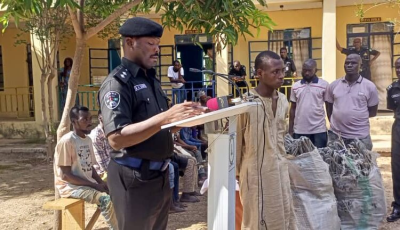Abuja, Nigeria — The family of the late Bilyaminu Bello has strongly condemned President Bola Ahmed Tinubu’s decision to grant a presidential pardon to Maryam Sanda, the woman convicted of killing her husband in 2017, describing it as “the worst possible injustice” and a painful reopening of old wounds.
In a statement signed by Dr. Bello Haliru Mohammed (Dangaladiman Gwandu) on behalf of the bereaved family, titled “When Prerogative of Mercy Inflicts Inexorable Pain,” the family expressed deep disappointment over the clemency extended to Sanda, insisting that justice had been undone by the decision.
“To have Maryam Sanda walk the face of the earth again, free from any blemish for her heinous crime, is the worst possible injustice any family could be made to go through,” the statement read.
Background of the Case
Maryam Sanda was convicted in January 2020 by the Federal Capital Territory High Court, Abuja, for the premeditated murder of her husband, Bilyaminu Bello, whom she reportedly stabbed to death during a domestic dispute on November 19, 2017.
The prosecution told the court that she attacked her husband with a broken bottle, causing fatal injuries, while Sanda maintained that her husband’s death was accidental, claiming he fell on a broken shisha pot during an altercation.
After a lengthy trial, Justice Yusuf Halilu found her guilty of culpable homicide and sentenced her to death by hanging — a verdict later upheld by both the Court of Appeal and the Supreme Court in 2020 and 2023, respectively.
The Presidential Pardon and Public Outcry
President Tinubu, on October 11, 2025, included Maryam Sanda among 175 inmates granted clemency under the federal Prerogative of Mercy programme. According to the Presidency, the recommendation was made by the Presidential Advisory Committee on the Prerogative of Mercy, which cited her “reformation, remorse, and the need to reunite her with her children.”
While some citizens have welcomed the pardon as a compassionate gesture, others, including human rights advocates and gender justice groups — have condemned it as a major setback in Nigeria’s fight against domestic violence and gender-based killings.
For the Bilyaminu family, the pardon represents a painful betrayal of justice.
“We had deliberately refrained from public commentary since the unfortunate incident, choosing instead to trust the Nigerian judiciary to deliver justice,” the family said.
“The conviction and subsequent appeal judgments provided some closure, but this latest turn of events has cruelly reopened our healing wounds.”
Family’s Reaction and Concerns
The statement accused the Presidency of disregarding the anguish of the deceased’s family in its decision-making process, arguing that the pardon was influenced by appeals from Sanda’s family without considering the emotional trauma inflicted on the victim’s loved ones.
“This act appears to be primarily driven by the sole motivation to appease Maryam’s family members by way of extending mercy to a certified convicted murderer,” the statement continued.
The family also reminded the public that Sanda had “shown no remorse even for a fleeting moment” throughout her trial and incarceration, and lamented that the same children now cited as grounds for mercy had been denied the love and care of their father due to her actions.
“Maryam, let’s not forget, had earlier on denied the same children now used to elicit sympathy and secure her release the opportunity to know what a father’s love and care means,” the family added.
Faith and Final Appeal for Justice
Despite their pain, the family concluded the statement on a note of faith and resignation, expressing hope in divine justice.
“We take solace in the simple fact that in such matters, the ultimate comprehensive justice resides with the Supreme Judge and our Creator, who will dispense justice on the Day of Recompense,” they stated.
The family prayed for Allah’s continued mercy upon the soul of the late Bilyaminu and strength for his surviving children.
“We beseech Almighty Allah to grant the soul of our dear Bilyaminu eternal rest and grant us the fortitude to bear this sad loss even in the light of this latest development,” the statement concluded.
Context and Reactions
Maryam Sanda’s case remains one of the most widely publicized domestic homicide cases in Nigeria’s recent history. Her 2020 conviction was hailed as a watershed moment for justice against gender-based violence.
However, her release has sparked renewed debate over the federal government’s use of presidential clemency, particularly in cases involving violent crimes. Critics argue that such pardons risk undermining public confidence in the justice system and eroding deterrence against domestic violence.
Legal analysts and civil society groups are now calling for a review of the processes guiding the Prerogative of Mercy to ensure transparency and fairness, especially in cases with significant public interest.









